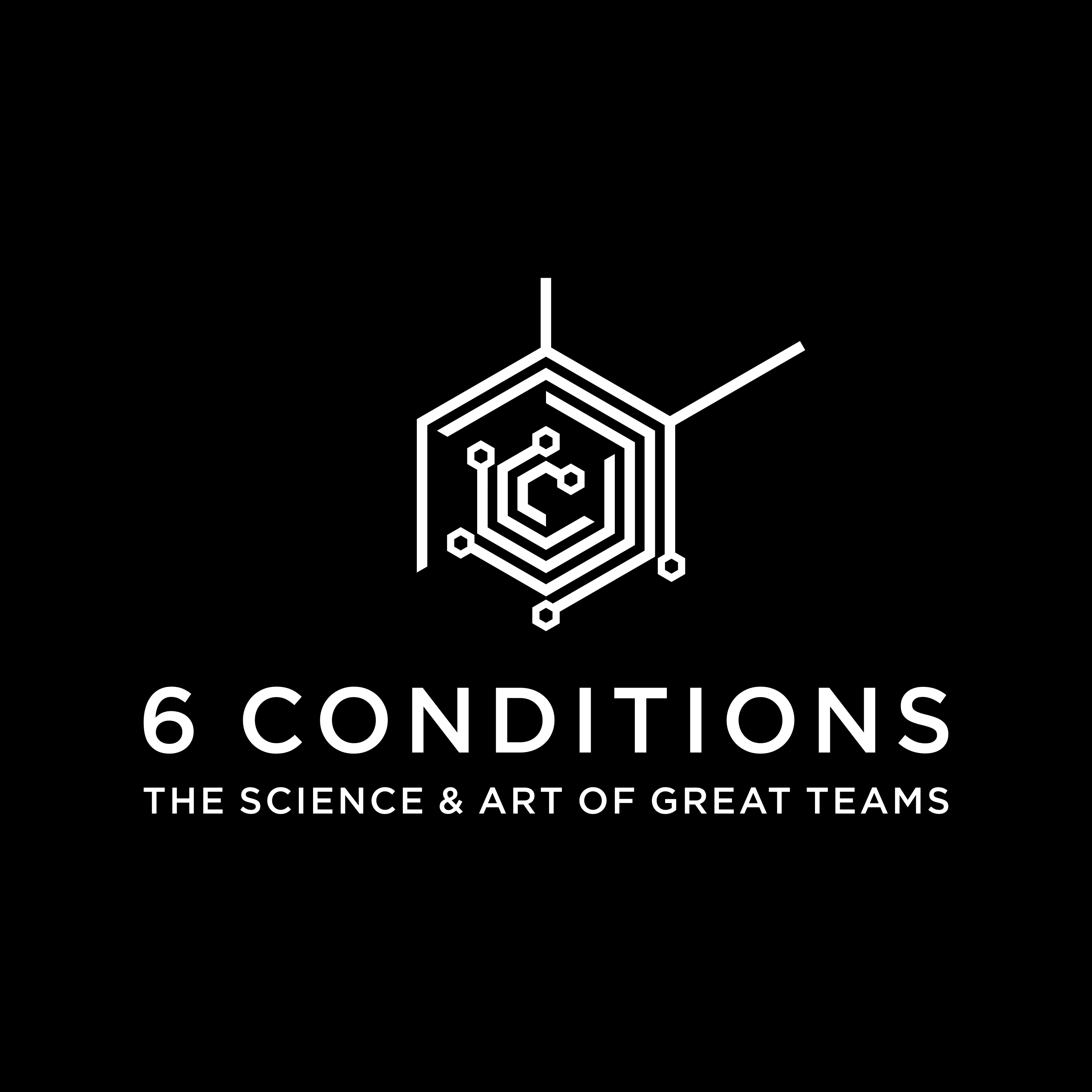Episode Summary
6 CONDITIONS PODCAST #013: TIJANA MCKENZIE & SATHI BANERJEE, ROYAL DUTCH SHELL: AN ENTERPRISE PERSPECTIVE ON HOW TEAM EFFECTIVENESS DRIVES BUSINESS OUTCOMES This episode is the 2nd in a 6-part series focusing on practitioner perspectives on applying the 6 Conditions Framework and Team Diagnostic Survey in organizations. In this episode Tijana McKenzie (Leadership and Organisational Development Consultant, Executive Coach, Diversity & Inclusion Champion) & Sathi Banerjee (Leadership Assessment Lead) from Royal Dutch Shell join Ruth and Krister to discuss how a large energy company is approaching team effectiveness including the role of the 6 Team Conditions framework and Team Diagnostic Survey. Research linking Team Diagnostic Survey data and business outcomes such as employee engagement, operational excellence, safety, people development, learning orientation, and psychological safety are explored. Some themes covered in the episode include: Covid19 Fatigue, Wellness, Prioritization The conditions that unleash team talent Demand for and drivers of team effectiveness at Shell Linking 6 Conditions and Team Diagnostic Survey data to business outcomes Building the data analytics findings into the team effectiveness offerings The struggles and journey towards team effectiveness The journey of team development practitioners Shout out to Jorrit Van Der Togt, Executive Vice President Shell Downstream HR -------------------------------------------------------- Disclaimer: Definitions & Cautionary Note: The companies in which Royal Dutch Shell plc directly and indirectly owns investments are separate legal entities. In this 6 Conditions Podcast “Shell”, “Shell Group” and “Royal Dutch Shell” are sometimes used for convenience where references are made to Royal Dutch Shell plc and its subsidiaries in general. Likewise, the words “we”, “us” and “our” are also used to refer to Royal Dutch Shell plc and its subsidiaries in general or to those who work for them. These terms are also used where no useful purpose is served by identifying the particular entity or entities. ‘‘Subsidiaries’’, “Shell subsidiaries” and “Shell companies” as used in this 6 Conditions Podcast refer to entities over which Royal Dutch Shell plc either directly or indirectly has control. Entities and unincorporated arrangements over which Shell has joint control are generally referred to as “joint ventures” and “joint operations”, respectively. Entities over which Shell has significant influence but neither control nor joint control are referred to as “associates”. The term “Shell interest” is used for convenience to indicate the direct and/or indirect ownership interest held by Shell in an entity or unincorporated joint arrangement, after exclusion of all third-party interest. This 6 Conditions Podcast contains forward-looking statements (within the meaning of the U.S. Private Securities Litigation Reform Act of 1995) concerning the financial condition, results of operations and businesses of Royal Dutch Shell. All statements other than statements of historical fact are, or may be deemed to be, forward-looking statements. Forward-looking statements are statements of future expectations that are based on management’s current expectations and assumptions and involve known and unknown risks and uncertainties that could cause actual results, performance or events to differ materially from those expressed or implied in these statements. Forward-looking statements include, among other things, statements concerning the potential exposure of Royal Dutch Shell to market risks and statements expressing management’s expectations, beliefs, estimates, forecasts, projections and assumptions. These forward-looking statements are identified by their use of terms and phrases such as “aim”, “ambition”, ‘‘anticipate’’, ‘‘believe’’, ‘‘could’’, ‘
